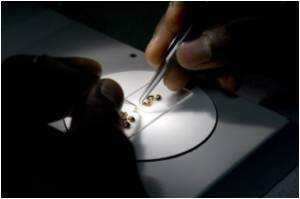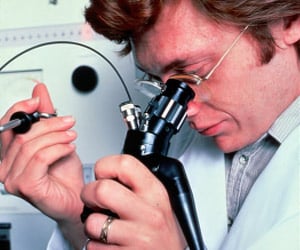A new breast imaging technique can nearly quadruples detection rates of cancers in dense breast tissues, reveals a new study.

MBI increased the detection rate of invasive breast cancers by more than 360 percent when used in addition to regular screening mammography, according to the study. MBI uses small, semiconductor-based gamma cameras to image the breast following injection of a radiotracer that tumors absorb avidly.
Senior author Deborah Rhodes said that the finding has important implications for breast cancer screening decisions, particularly as 20 states now require mammography facilities to notify women about breast density and encourage discussion of supplemental screening options.
Rhodes added that these findings suggest that MBI has a more favorable balance of additional invasive cancers detected versus additional biopsies incurred relative to other supplemental screening options.
Recent studies have reported supplemental cancer detection rates of 1.9 per 1,000 women screened with automated whole breast ultrasound and 1.2 to 2.8 per 1,000 women screened with digital breast tomosynthesis, so the finding of an additional 8.8 cancers per 1,000 women makes MBI a very compelling option for women who elect supplemental screening, says Rhodes.
Michael O'Connor, inventor of the MBI technology, said that this new study is important because it shows that studies can be performed safely, with low radiation exposure to the patient, suggesting MBI is safe and effective as a supplemental screening tool.
Advertisement
Source-ANI















